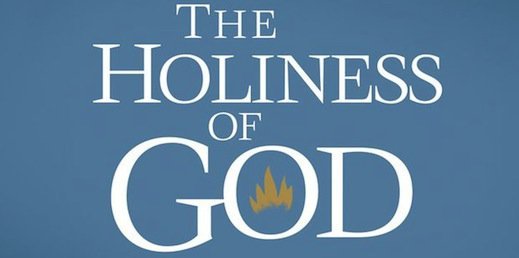This week’s chapter of The Holiness of God is titled “The Trauma of Holiness.” I love the title; it introduces an immediate question that just begs for an answer: If holiness is so good, how could it be in any way traumatic? It’s a clever little hook.
Summary
Sproul begins with the story of Jesus calming the storm on the Sea of Galilee. At the conclusion of the story he points to the disciples’ reaction to the fact that Jesus could simply speak and calm the storm: they were terrified. And here he makes an application that really struck me. “Now that the sea was calm, the fear of the disciples increased.” Sproul answers, “In the power of Christ they met something more frightening than they had ever met in nature. They were in the presence of the holy. … It is one thing to fall victim to the flood or to fall prey to cancer; it is another thing to fall into the hands of the living God.” He points as well to a rather interesting little point. “The words the disciples spoke after Jesus calmed the sea are very revealing. They cried out, ‘Who is this?’ The King James Version expresses the question like this: ‘What manner of man is this, that even the wind and the sea obey him?’ The question was ‘What manner of man is this?’ They were asking a question of kind.” In other words, they were looking to put Jesus in a category, realizing that he was in a class all by himself. They saw that he was holy. And this holiness traumatized them.
A little later in the chapter Sproul looks to the Pharisees, the religious leaders who were regarded as the holiest of the holy. They were revered as men who were singularly pure, as men who drew near to God by their fastidious obedience to his every law.
Through their singular devotion to the pursuit of holiness, the Pharisees achieved a level of popular respect for piety and righteousness that was without parallel. They had no peers. They were accorded lofty human praise. They were welcomed to privileged seats in the banquet halls. They were admired as experts in religion. Their uniforms were decorated with the tassels of their exalted ranks. They could be seen practicing their virtue in public places. They fasted where everyone could see them. They bowed their heads in solemn prayer on the street corners and restaurants. No one missed the clang of the coin in the beggar’s cup when the Pharisees game alms. Their “holiness” was plain for everyone to see. Jesus called them hypocrites.
But then there was Jesus, who was so different from the Pharisees.
It has been said that nothing dispels a lie faster than the truth; nothing exposes the counterfeit faster than the genuine. Clever counterfeit dollars may be unnoticed by the untrained eye. What every counterfeiter fears is that someone will examine his bogus bill while holding a genuine one next to it. The presence of Jesus represented the presence of the genuine in the mist of the bogus. Here authentic holiness appeared; the counterfeiters of holiness were not pleased.
And how did the Pharisees react to Jesus? They despised him. His true holiness unmasked their false holiness. And they hated him with an unparalleled kind of hatred.
Holiness provokes hatred. The greater the holiness the greater the human hostility toward it. It seems insane. No man was ever more loving than Jesus Christ. Yet even His love made people angry. His love was a perfect love, a transcendent and holy love, but His very love brought trauma to people. This kind of love is so majestic we can’t stand it.
And it strikes me that people continue to hate holiness today. People may be drawn to a kind of counterfeit holiness, a supposed holiness manifested in good deeds or kind acts, but they still react against those who are truly holy, who have been given a special measure of God’s Spirit. Not much as changed in the past 2,000 years. Holiness is still traumatic.
Next Week
For next Thursday please read chapter 5, “The Insanity of Luther.”
Your Turn
The purpose of this program is to read these classic books together. This means that it’s now your turn to offer your thoughts or your questions on this week’s reading. You can do so by leaving a comment here or by posting a link to your own site if you left a comment there. Of course there is no need to say anything. Just read and enjoy if that’s more your style.










